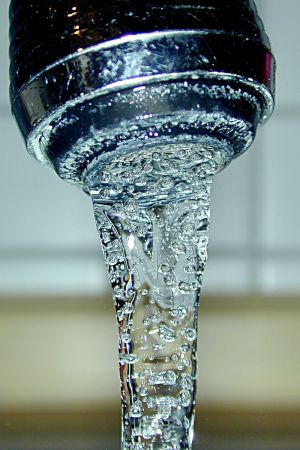
Soft Water/Hard Water: What’s the Difference?
Soft Water/Hard Water: These are terms we often hear about, but have you ever asked yourself what they actually mean or how they affect us? Professionals talk about hardness in numerical terms such as grains per gallon. 1.0 is soft, 1.0-3.5 is slightly hard, 3.5-7.0 is moderately hard, 7.0-10.5 is hard, and greater than 10.0 is very hard. Whether a water supply is hard or soft depends on two highly soluble minerals, calcium and magnesium. When these minerals are present in water, they start to build up on contact surfaces and decrease the effectiveness of soaps and shampoos. At this point, water is said to be hard.
Soft Water/Hard Water: What’s the Difference?
If water hardness is detected, consideration should be given as to whether or not a “softener” should be installed. Slightly and moderately hard water will not cause major scaling or soap build up. However, over a period of time, plumbing fixtures will need additional maintenance. Hard water on the other hand, will cause major scaling, cause fixtures to fail and will make your hair look and feel flat.
Soft Water/Hard Water: What’s the Difference?
Here are 4 indicators that you have Soft Water/Hard Water:
1.Defective Plumbing: Showers, bathtubs and faucets have a build-up of solidified minerals over time and can be unsightly. Clogged passages is the result of boilers and plumbing systems that have pumped hard water through them long-term.
2.Dry, Itchy Skin and Dull Unmanageable Hair: elevated levels of Calcium and Magnesium in the water effects soaps and shampoos, leaving your skin and hair less desirable and unrulling.
3.Dirty, Clean Laundry: The effects of hard water on clothes and other fabrics are clear to see. White colored clothes gain a certain grayish hue, other colors become faded and seem less vibrant than they once were. As well as the clothes looking worse they can feel scratchy or dingy, and washing powders designed to counteract this can only do so much.
4.Cloudy Pool Water: If you’ve ever owned or swam in a pool that had a cloudy, murky look to it there is every chance the culprit was none other than the hardness of the water. Higher than desired levels of Calcium salts can even cause issues with pool filtration, and permanent scaling around the inside of the pool.
Have one of R.E. Sanders experienced plumbers do a free test to determine the level of hardness and make recommendations to correct the problem. R.E. Sanders, Setting the Standard in Comfort.
